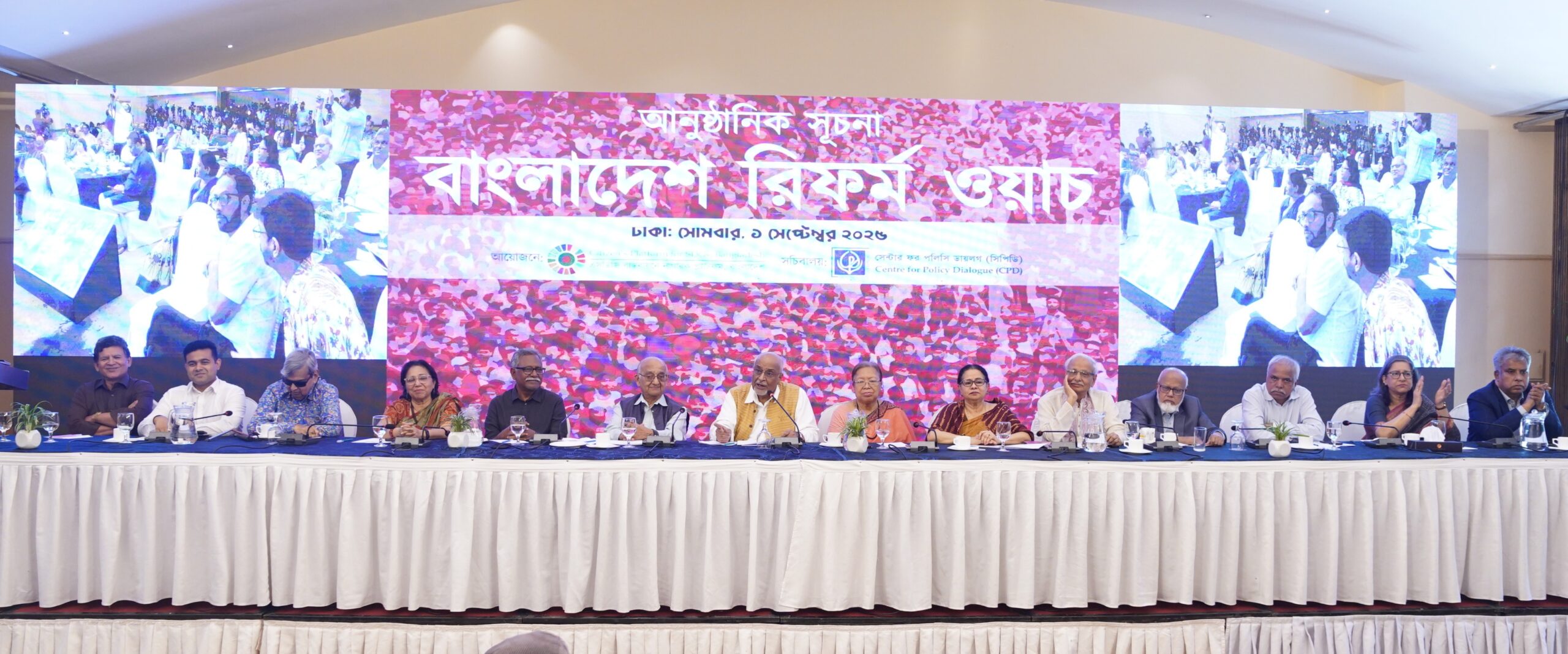
In the aftermath of the July–August uprising, citizens carried strong expectations for reforms across multiple fronts. These reforms were envisioned as critical steps toward advancing socio-economic development, strengthening political institutions, and upholding human rights.
One year on, however, pressing questions remain: How far has the reform process advanced? Within its remaining tenure, how much further will the interim government be able to carry forward the reform agenda? To what extent will political parties’ election manifestos reflect the aspirations for reforms? And most importantly, in the post-election period, will reform discourse and implementation meaningfully include and reflect the voices and concerns of marginalised communities?
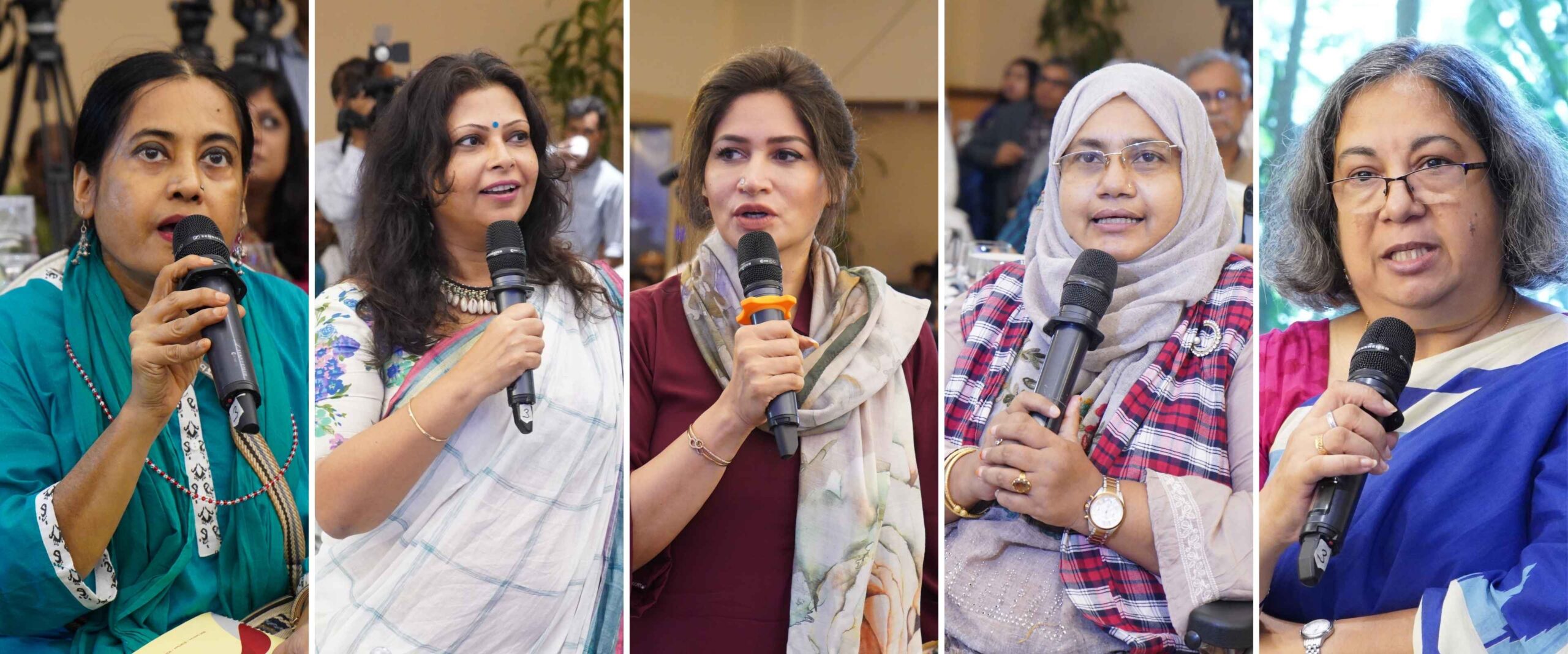
Against this backdrop, on 1 September 2025, the Citizens’ Platform for SDGs, Bangladesh officially launched Bangladesh Reform Watch at a gathering of more than 200 participants at Lakeshore Hotel, Dhaka. The event brought together CSO leaders from grassroots to the national level, business leaders, youth representatives, political leaders, and members of the media.
The initiative, Bangladesh Reform Watch, is a citizen-driven platform to promote fairness, inclusiveness, and accountability in Bangladesh’s reform processes. It seeks to influence political party manifestos and ensure the sustainable implementation of socio-economic reforms. Leading up to the launch, the Citizens’ Platform convened extensive consultations with civil society organisations, business leaders, academics, support groups, partners, non-resident Bangladeshis (NRBs), and thought leaders. These discussions emphasised the urgent need to translate Bangladesh’s anti-discrimination spirit into actionable reforms—ensuring inclusivity of marginalised groups, accountability of decision-makers, and proactive implementation across civil society and political spheres.
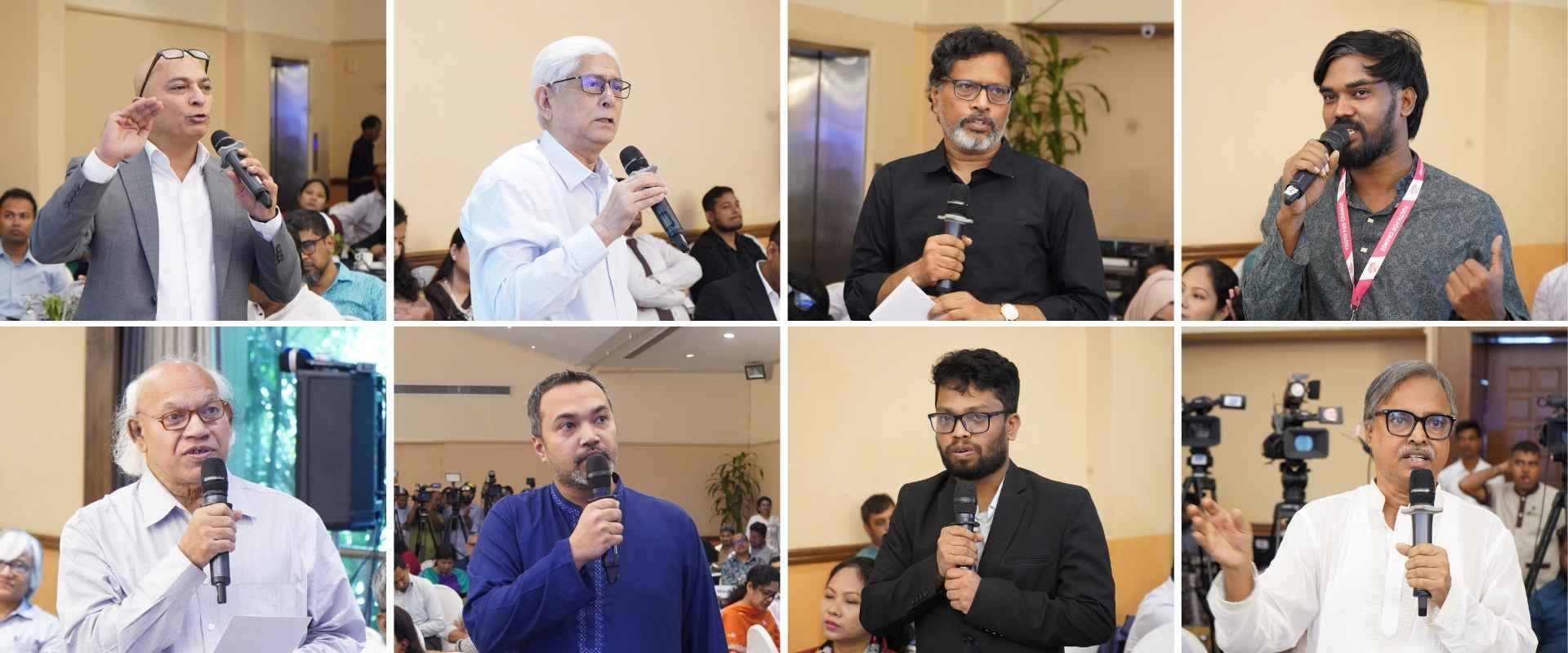
Dr Debapriya Bhattacharya, Convenor, Citizens’ Platform and Distinguished Fellow, Centre for Policy Dialogue (CPD), moderated the event. Professor Rehman Sobhan, Chairperson, CPD, chaired the session. The forum highlighted the broader context of reforms in Bangladesh, examining their implications, feasibility, and the mechanisms for effectively monitoring and advancing the reform process through the Bangladesh Reform Watch.
Dr Debapriya Bhattacharya, Convenor, Citizens’ Platform and Distinguished Fellow, Centre for Policy Dialogue (CPD) emphasised that Bangladesh’s greatest asset at present is the anti-discrimination spirit of the July Revolution. The Bangladesh Reform Watch aims to extend this spirit across civil society and into the political spectrum. He noted that the interim government, in its dialogues, failed to adequately engage marginalised groups, as the focus remained largely on political actors. He also raised concerns over why the commission reports were not pursued further, questioning whether this reflected a lack of willingness, limited capacity, or even personal motives.
Professor Mustafizur Rahman, Core Group Member of the Citizens’ Platform and Distinguished Fellow at CPD, noted that the first interim government under Shahabuddin Ahmed undertook 29 reform initiatives, most of which were not implemented. He stressed that ensuring participation, inclusivity, and accountability of decision-makers is key to making current reforms successful.
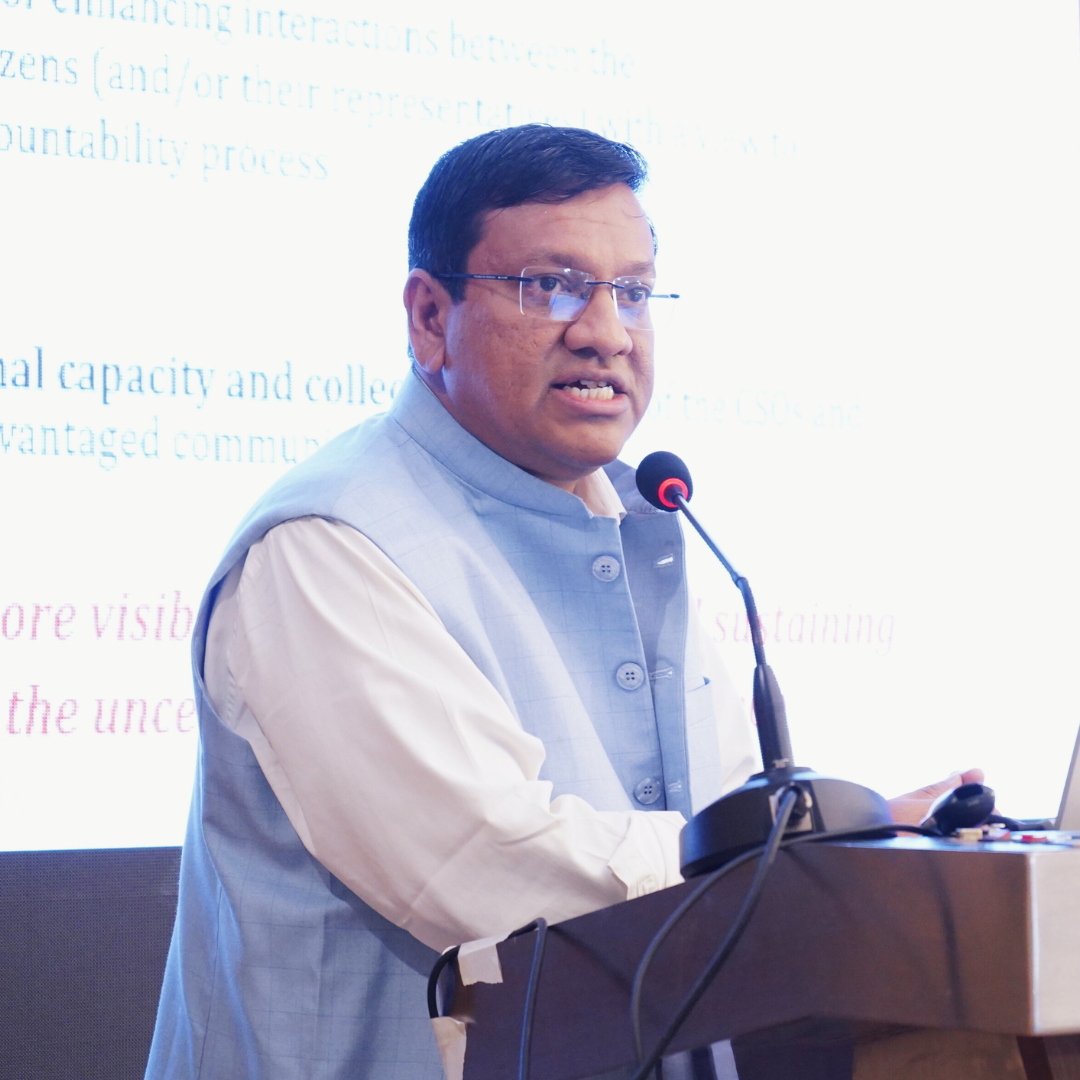 Mr Towfiqul Islam Khan, Additional Director, Research, CPD, outlined four approaches for the Bangladesh Reform Watch: assessing the overall reform landscape, tracking progress, observing the reform journey, and monitoring implementation. He emphasised that the broader anti-discrimination vision will be reflected through this ‘network of networks’ that the Bangladesh Reform Watch seeks to establish.
Mr Towfiqul Islam Khan, Additional Director, Research, CPD, outlined four approaches for the Bangladesh Reform Watch: assessing the overall reform landscape, tracking progress, observing the reform journey, and monitoring implementation. He emphasised that the broader anti-discrimination vision will be reflected through this ‘network of networks’ that the Bangladesh Reform Watch seeks to establish.
Mr. Md. Fazlul Hoque, Former President of BKMEA and Managing Director of Plummy Fashions Ltd, expressed disappointment at the interim government’s inability to implement reforms. He proposed engaging senior political party leaders in Bangladesh Reform Watch and incorporating the reform initiatives into their election manifestos.
Dr Tofail Ahmed, Chair, Local Government Reform Commission, expressed disappointment that reports published by reform commissions are rarely implemented or play little role in the reform process. He urged the Interim Government to prioritise the implementation of certain proposed reforms that do not require constitutional change and can be achieved within its tenure.
Ms Farah Kabir, Country Director, ActionAid Bangladesh, affirmed her commitment to engaging at the grassroots level and working inclusively with all actors in the reform process, with a particular focus on advancing women’s rights and empowerment.
Mr Syed Sultan Uddin Ahmed, Chair, Labour Reform Commission and Executive Director, Bangladesh Institute of Labour Studies (BILS), observed that recent calls for reform largely reflect the helplessness of ordinary people, and stressed the need to transform this sense of despair into courage.
Mr S M Saikat, Executive Director, SERAC Bangladesh, proposed introducing a nationwide online voting system to strengthen accountability and engage youth in the democratic process.
Dr Anu Muhammad, Eminent Economist and Former Professor, Department of Economics, Jahangirnagar University, stressed the need to scrutinise government accountability in addressing discrimination based on class, gender, and nation, and to assess the extent to which reforms are being implemented.
Mr. Monsur Ahmed Chowdhury, Founder Trustee of Impact Foundation Bangladesh and human rights expert on disability, highlighted that persons with disabilities make up 15% of the population. He stressed that this significant vote bank should be effectively considered by political parties.
Ms. Shaheen Anam, Core Group Member of the Citizens’ Platform and Executive Director of Manusher Jonno Foundation, noted that rising inequality, child abuse, and mob violence indicate little progress toward achieving SDG 16. She further emphasised that children’s issues were absent from the reform commissions and urged Bangladesh Reform Watch to prioritise the needs of children.
Dr Badiul Alam Majumdar, Chair, Electoral System Reform Commission, emphasised that the students who played an active role in the July movement are not currently engaged in tracking the reform process, and he stressed that this gap needs to be addressed.
Ms. Rasheda K. Chowdhury, Chair, Core Group Member of the Citizens’ Platform and Executive Director of CAMPE, noted that during the previous regime, people doubted whether they would be able to cast their votes, and this doubt still persists in the public mindset. She pointed out that, apart from the National Citizen Party, female representation is absent in the core groups of political parties. She suggested that Bangladesh Reform Watch focus on specific sectors to enhance its effectiveness.
Ms. Nirupa Dewan, Chair, Member of the Women’s Affairs Reform Commission and Former Member of the National Human Rights Commission, observed that there has been no noticeable improvement in the lives of people in the Chittagong Hill Tracts. On the contrary, she noted that in some cases their conditions have worsened during the tenure of the interim government.
Dr Hossain Zillur Rahman, Chair, BBS Reform Taskforce and Executive Chairperson, Power and Participation Research Centre (PPRC), emphasised that merely observing the reform process is insufficient and stressed the need to take proactive measures to ensure the implementation of reforms that are not progressing.
Professor Rehman Sobhan, Chairperson, CPD, questioned which reforms are actually being implemented. While he noted Dr Yunus’s assurance that the election is only a few months away, he stressed the need for clarity on the 82 proposed reforms and which of them have been acted upon. He also highlighted the importance of incorporating an accountability mechanism into the collective reform process.
In the open-floor discussion, participants emphasised the need for the Interim Government to implement at least one visible reform, ensure inclusion of youth, women, and people with disabilities, address technological and climate-related gaps, and strengthen NGO accountability. There was broad consensus on the importance of a mass movement to advance reforms.
More about “Bangladesh Reform Watch”
Bangladesh Reform Watch will assess both the feasibility of financing reforms and the capacity of the government and relevant institutions to implement the reforms. A key focus will be to ensure that the voices of marginalised groups are reflected in reform-related policies, and that their participation is ensured in the implementation process.
The tracking and monitoring as a part of the initiative will cover a wide range of reform areas, including: public financial management, capital market, banking and financial sector, energy transition and security, public services and utilities, decent employment and labour rights, social protection, quality education, universal health care, agriculture and land management, distributive implication of LDC graduation, climate and environment, gender equity, democratic accountability, universal human rights and security, and the data ecosystem.
This citizen-led initiative will be implemented in collaboration with over 150 partner organisations at the national and grassroots levels, with the support of leaders from the private sector, experts and professional bodies. The initiative will function as a ‘network of networks’.


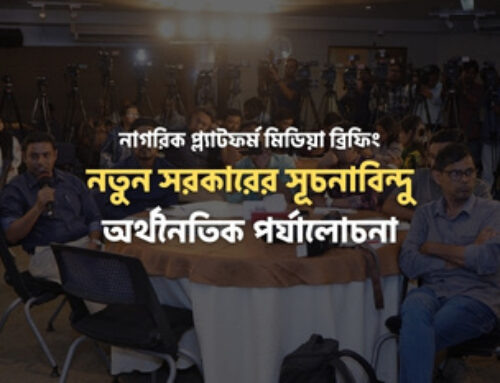
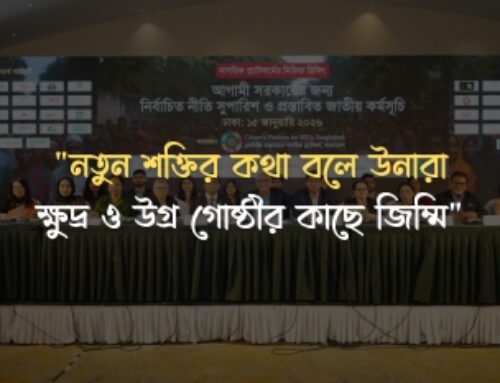
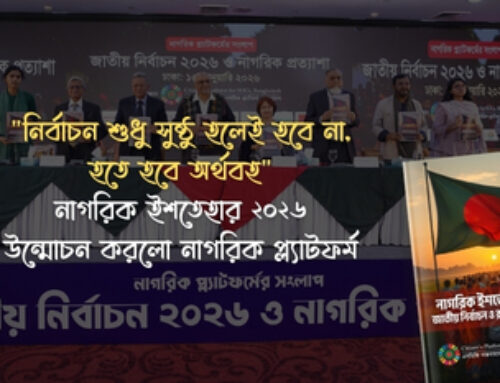
Leave A Comment